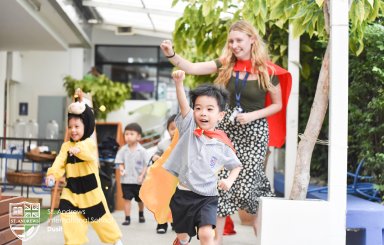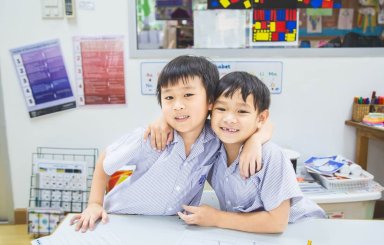At our international nursery, we encourage children to express their thoughts and needs while embrace their uniqueness. Allowing children to play freely gives them opportunities to learn through various activities and helps teachers manage classroom instruction more effectively. Our facilities include both indoor and outdoor playgrounds, a ball pit, and a sandpit, each featuring obstacle courses that challenge children to solve problems and develop various skills. This approach fosters continuous growth and development in every child
We are an international nursery in Bangkok that lays the foundation for learning with the Early Years Foundation Stage (EYFS) curriculum according to British standards. We focus on a supportive learning environment and design teaching methods tailored to each child, underpinned by a foundation of safety for both physical and mental health, to ensure our students grow to their fullest potential at each developmental stage










